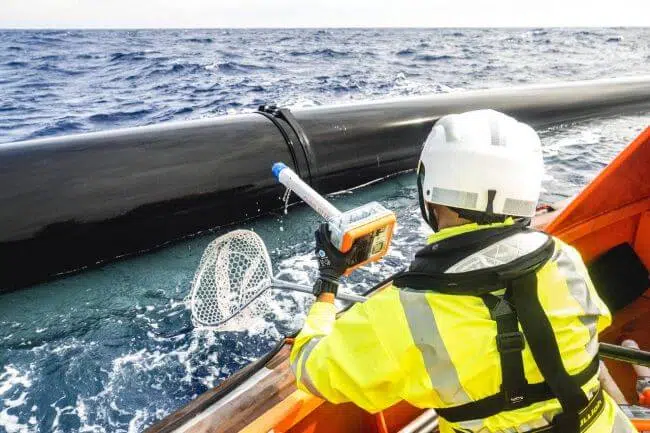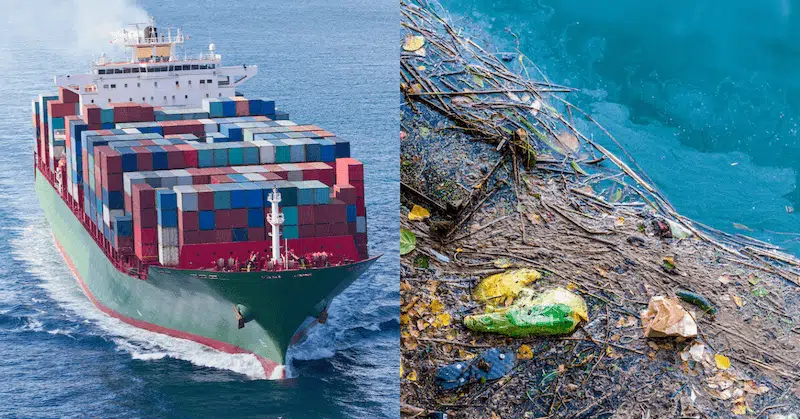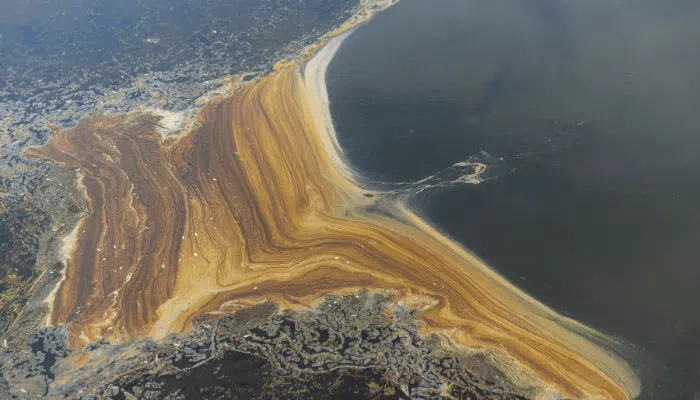Ocean Pollution – 6 Things That Make It Worse
It is a well-known fact that nearly 70% of the earth is filled with water in the form of different kinds of water bodies such as oceans, lakes and rivers etc.
All these water bodies, especially oceans and seas, form an indispensable part of our existence as it has key roles to play in our everyday life.
This factor of indispensability has not only helped us tremendously but has also resulted in the exploitation of the oceanic resources without any second thoughts.
The careless human intervention has badly affected the oceanic ecosystem, threatening the existence of several other species on earth, including human beings.
Accidents such as the BP oil spill and Samarco dam collapse are the striking instances to see how badly human activities can destroy the rich ecosystem of water bodies.
Causes of Ocean Pollution
Dumping sewage in the ocean has always been considered the cheapest and the easiest way of disposing of wastes.
The billions of tons of litter end up in the ocean each year reportedly bring 250 million tons of trash into the sea every year.
However, reports also suggest that littering makes the aquatic life in the oceans and seas worse these days.
1. Ocean Dumping
Among all sorts of activities that pollute the ocean, dumping of garbage and other waste materials stands first in the list. Dumping involves depositing all the waste materials from factories and industries, tankers and ships and sewerage waste materials into the oceans and seas.
Some of the materials emitted by the industrial wastes and sewage wastes contain materials like mercury, cryolite and DDT.
Certain industrial wastage also includes radioactive materials. Even small amounts of these substances tend to have negative effects.
The scale and the magnitude of the ocean dumping are not just vast but are so huge, that our entire civilisation could be wiped out with the intensity of careless dumping.
The discharge of ballast water also causes the problem by way of ocean waste. Ballast water tends to proliferate and transfer organisms that debilitate the growth of naturally occurring fishes in a particular oceanic area.
2. Land Runoff
According to researchers, many pollutants, almost eighty percent pollution, are released into the marine environment far upstream from coastlines.
The non-point pollution, which is a result of land runoff brings many wastage materials such as the debris of cars and boats into the sea every day.
Moreover, rivers during floods pick up harmful contaminants including fertilizers, petroleum, and pesticides, among others.
Studies have suggested that the presence of fertilizers in the ocean will result in the sudden explosions of marine algae, which can disrupt ocean ecosystems, and also the creation of dead zones in the waters.
3. Oil Spills
Spilling of oil from tankers and offshore rigs in the oceanic area is also another example of sea pollution. Several of such oil spills from tanker ships after accidents, including Deepwater Horizon, Gulf War oil spill and Atlantic Empress, have shown us the extent of the damages the spills can do to the ecosystems.
Spilling of oil can happen inadvertently where small doses of oil are leaked into the oceans by the tanker ships or in a massive scale where gallons and gallons of oil are leaked into the water surface of the ocean after the collision of vessels or capsizing.
The pollution through oil spills can have serious consequences for society, both economically and environmentally. Importantly, the main victims of oil spills are birds and mammals.
The Gulf of Mexico oil spill has caused problems to birds among the other marine creatures whose wings had gotten covered by the slick, causing them to die a slow and painful death.
4. Littering
Beaches covered with plastic wastes are not a rare scene in these days. Besides the large chunk of industrial wastes, the dumping of plastic is another biggest source of pollution as it slowly leads to adverse effects.
Materials like plastic are non-degradable which means they will not be absorbed and recycled. When oceanic creatures and even birds consume plastic inadvertently, they choke on it which causes a steady decline in their population.

(A crew member retrieves a GPS drifter from the water.)
Activists say who suffer from the plastic debris are dolphins, sharks, turtles, crabs, and sea birds, among others.
The Pacific Ocean Garbage Patch is a very good example of plastic being hazardous and Islands like Henderson have transformed from the beautiful lands to Plastic Junkyards.
5. Ocean Mining
Mining under the ocean for silver, gold, copper, cobalt, etc. is another source of ocean pollution. Mines, where ores are drilled thousands of meters down, dispose of their wastes in the ocean, creating disastrous impacts in the marine life on the seabed.
Researchers, with limited scientific evidence, suggest that such activities help increase the toxicity, which will eventually put the ecosystem in the area under threat.
6. Noise Pollution
Besides these reasons, the aquatic life in the sea is also disturbed by several other factors. Recent studies have proved that the increasing noise pollution in the sea also creating threats to marine life.
In addition to the increased traffic, the loud sounds from sonar devices and oil rigs also making the situation worse.
According to researchers, the noise pollution will disrupt the migration and reproduction patterns of mammals like whales and dolphins.
Effects of Ocean Pollution
The adverse effects of marine pollution are two-fold. Marine creatures and plants bear the brunt of the harmful substances in the dumped materials.
The wastes that are dumped into the oceans tend to have toxic substances, which soak in all the oceanic oxygen. This leads to a marked depletion of oxygen available to mammals and other fishes causing them to die in their natural habitat.
Every year, according to reports, more than one million seabirds are being killed by ocean pollution. In addition, thousands of dolphins and porpoises are dying every year due to increased human intervention.
The increased presence of plastic on the ocean surface has resulted in more serious problems. Since most of the plastic debris that reaches the ocean remains floating for years as it does not decompose quickly, it leads to the dropping of oxygen level in the water, severely affecting the survival of marine species.
Similarly, the presence of harmful wastes in the waters make impacts on the food habits and health of human being because it spoils the food chain and fails the reproductive system of fish and other aquatic beings.
Also, in case the dumping ground is closer to areas where fishing is the main scale activity and if the toxic substances get consumed by the fishes which get deposited and accumulated in their fat tissues, then the humans consuming these affected fishes can face unwanted complications.
In order to prevent further degradation of the oceanic environment and the eco-system, several laws and regulations have been enacted.
The London Convention of 1975 is one of the prominent ones, while other laws include the Clear Water Act (CWA) and the Ocean Dumping Act (ODA) which have been established by the United States to tackle the problem of pollution of the ocean.
Meanwhile, efforts are underway to clean up the mess that pollutes the oceans and its ecosystem. The Ocean Cleanup project, initiated by Dutch-born inventor-entrepreneur Boyan Slat, is attempting to remove plastic wastes from the sea and also preventing more plastic debris from entering the waters.
Started in 2014, the team now conducting research on the total quantity of plastic debris in the oceans, feasible recycling methods.
You might also like to read:
- Effects of Noise Pollution from Ships on Marine Life
- MARPOL (The International Convention for Prevention of Marine Pollution For Ships): The Ultimate Guide
- 8 Ways Cruise Ships Can Cause Marine Pollution
- Marine Pollution by Ships -Tips for Reducing Recycling Waste at Sea
- 10 Endangered Ocean Species and Marine Animals
- What is Plastic Aquatic Project?
Disclaimer: The authors’ views expressed in this article do not necessarily reflect the views of Marine Insight. Data and charts, if used, in the article have been sourced from available information and have not been authenticated by any statutory authority. The author and Marine Insight do not claim it to be accurate nor accept any responsibility for the same. The views constitute only the opinions and do not constitute any guidelines or recommendation on any course of action to be followed by the reader.
The article or images cannot be reproduced, copied, shared or used in any form without the permission of the author and Marine Insight.
Do you have info to share with us ? Suggest a correction
Subscribe To Our Newsletters
By subscribing, you agree to our Privacy Policy and may receive occasional deal communications; you can unsubscribe anytime.






can we stop this ?
I thought this article was or is going to be an improvement to the earth.
Industrial dumping, farming pollution, and water plant and distribution pipe deterioration affect water systems every day. News21 investigated and revealed that as many as 63 million people have been exposed to potentially unsafe water more than once during the past decade.
no comment
If it’s this bad, what aren’t we stopping it?
I am doing a project for my school. Can I use information from this site (of course, putting the link to the article as part of my sources)
@Mauro: As long as you are giving the credits, it is absolutely fine.
Alright, thank you!
thanks, loved it for real
lots of love from uganda
Can I use this information for my school presentation ? ( of course I will put the link as part of my sources )
@Goh Cheng: We just need the credit as a link back. Thanks .
CAN I PLEASE USE THIS INFO PLEASE
Yes, You can use after giving due credit to the author and website.
I hate pollution
@Keegan: We are on the same page.
If giving the credit can I use this information in a project for my Environmental Class
@Tonya: Yes, you can. 🙂
I am doing a project for my school. Can I use information from this site for my resources on thesis
@Aristotle: You can use it by crediting the author and the website.
Can I please use this article in some of my essay for ” No fish in 2050″. I will of Course link my credit to this source
Can I used this information? For my project?
@Shaziya: You can use by giving due credit to the author and website.
we need to stop rubbish from going into our oceans and sea we need to do somthing about it
@Stephen: Absolutely, Need of the hour.
can I use this information for my school project?
I will give due credits to the author and website.
@Rose: Yes, you can use it for your offline school project.
change the world one step at a time????????????
I think this is by for the animals are dying because of us.We need to stop this now!!!!!!!!!!!!!!!!!!!!
Sorry may I know the authors name .
Let us look at dumping our waste into the sea and rivers….perhaps a better way would be to, have waste collected, every three months, in sealed containers, and then it is taken to mingle with the soil, which may be a better way of reducing all the water pollution , it will take time, And there is a cost, but if 600 million
people put in a pound per week, and the money is used for this purpose, then I am certain this would make a great difference to the situation. Of course £3..00 per week, plus monies from very wealthy , and also the Government, this can be something to make a change. The system costs, the vehicle costs, wages, etc
It is provided below the title.
Can I use this stuff for a project in my Science Class
It is called beach Pollution.
I will give credit where credit is due OFC
Can I use this stuff for a project in my Science Class
It is called beach Pollution.
I will give credit where credit is due